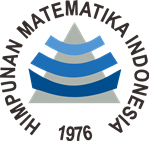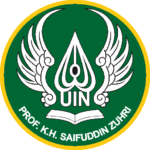Effect of Application of Model for Inclusive and Compulsory Participation Strategy for Teaching and Learning Mathematics on Students’ Learning Outcomes
DOI:
https://doi.org/10.24090/ijrme.v2i1.10542Keywords:
Model; Inclusive and Compulsory Participation; Strategy for teaching and learning; MathematicsAbstract
Inclusive and compulsory participation strategy of teaching mathematics is designed to ensure that all the learners and the teacher are involved in the teaching and learning process. A pretest, posttest, quasi-experimental design study was carried out with 275 senior secondary school class two (SSC2) students to test the effectiveness of the model. They were divided into experimental group of 135 students, taught construction and loci using inclusive and compulsory participation strategy and control group comprising 140 students, taught the same topic using conventional strategy. The result showed that the experimental group had a mean score of 87% and standard deviation of 7% as against mean of 53% and standard deviation of 9% obtained by the control group. This give a t-test score of 34.76 which is greater than the critical value of t = 1.96 at 0.05 level of significance, implying that there existed a significant difference in the achievement, in favour of the experimental group with higher mean score. Similarly, the attitude test scores were 73% with standard deviation od 5% for the experimental group while the control group had a mean attitude score of 49% and standard deviation of 6%, giving t-test of 35.95 showing that there is a significant difference in the attitude score of the groups with the experimental group having higher mean attitude score of 73% as against 49% and standard deviation of 5% and 6% respectively obtained by the experimental and control groups. The model and its strategy is highly recommended.References
Agunloye, A. O. and Smith B. R. (2015) Effect of Inclusive Education on the Performance of Students in Mathematics and English Language. A school Study. European Scientific Journal Special Edition, 2015.
Ainahdi G. H., Linder K. T. and Schwaib S. (2022). Teachers Implementation of Inclusive Teaching Practices as a Potential Predictor for Student’s Perception of Academics, Social and Emotional Inclusion, Frontier in Psychology. https://doi.10.3389/ipsyg.2022.9/7870 . 10/12/2023.
Al-Shammari, Z., Faulkner, P. E., Forlin, C. (2019). Theories-Based Inclusive Education Practice. In Education Quarterly Reviews. 2(2)408 – 418. https://www.assianinstituteofresearch.org. 10/12/2023.
Alshutwi S. M. Ahmad A. C. and Lee L. W. (2020). The impact of Inclusion Setting on the Academic Performance, Social Interaction and Self-Esteem of Deaf and Hard of Hearing Students. Systematic Review and Meta-Analysis. International Journal of Learning, Teaching and Mata-Analysis. International Journal of Learning, Teaching and Educational Research. 19(10)248-264.
Brecavscek A., Jerebic J., Rus G. and Znidasic A. (2020). Factors Influencing Mathematics Achievement of University Students of Social Sciences. Mathematics 8(12)2134. https://doi.org/10.3390/maths56/2434. 10/12/2023.
Civil, M. and Planas, N. (2004). Participation in Mathematics learning. For Learning Mathematics. 24(1)7 – 12. https://www.jstor.org/stable/40248439.PDFfile . 10/12/2023.
Cole M. C., Murphy H. R., Frisby M. B., Grossi T. A. and Bolte H. R. (2020). Impact of Inclusiveness on Students Academic Outcomes. The Journal of Special Education. https://doi.org/10.26803/ijlter.19.10.14. 10/12/2023.
Dalgaard N. T., Bondebjerg A., Veinholt B. C. A., Fuges T. (2020). The Effect of Inclusion on Academic Achievement Socio-emotional Development and Wellbeing of children with Special Educational Needs. Campbell Systematic Review. 18(4)1-44.
Daniel L. G. and King D. A. (1997). Impact of Inclusion Education on Academic Achievement, Student Behavior and Self-esteem and Parental Attitudes. The Journal of Educational Research. 19(2)67-80.
Dawkins H. S. (2010). The Impact of Inclusion on the Academic Achievement of High School Special Students. Education Thesis, Dissertation and Project. Paper 92.
https://digitalcommons.gardner.webbeducation.eld. 10/12/2023.
Dissemontet R. S., Bless G. and Morin D. (2011). Effects of Inclusion on the Academic Achievement and Adaptive Behavior of children with intellectual disabilities. Journal of Intellectual Disability Research. 56(6)579-587. https://doc.10.111/j.1365-2788.2011.01497. 10/12/2023.
Ereck K. McCreith T. and Lapainte V. (2005). Factors Associated with mathematics Achievements and Participation in Advanced Mathematics Course: An Examination of Gender Differences from International Perspective. School of Science and mathematics. 105(1)5-14. https://doi.1011/j.la492005 10/12/2023.
Ewing, B. (2017). Theorizing Participation, Engagement and Community for Primary and Secondary Mathematics Classroom. Creative Education. 8,788 – 812.
Gardsten, M. and Palmer, H. (2023). Students’ Participation in Mathematics in Inclusive Classrooms: a Study of the Enacted Mathematical and Relational Knowing of the Teachers. Mathematical Thinking and Learning. https://doi.org/10.1080/109360152023.2258485 . 10/12/2023.
Ing, M., Webb. N. M., Frank, M. L., Turrou, A. C., Wong, J., Shin, N. and Fernandez, C. H. (2015). Students Participation in Elementary Mathematics Classrooms: The Missing Link between Teacher Practices and Students Achievement. Educational Studies in Mathematics. 90:341 – 356. https://link.springer.com/article/10.1007/s.10649-015-9625. 10/12/2023.
Isaac M. (2015) factors Leading to Poor Performance in Mathematics Subject in Kibaha Secondary School. The Open University of Tanzania Dissertation.
Jiang, S., Liu, R., Ding, Y., Fu, X., Sun, Y., Jiang, R and Hong, W. (2020). Implicit Theories and Engagement in Mathematics Among Chinese Adolescence Students: A Moderated Mediation Model of Intrinsic Value and Academic Self-Efficacy. Frontier in Psychology. https://doi.11.1325/ipsyg.2020.9/7870. 10/12/2023.
Kark A. and Kart m. (2021) Academic and Social Effects of Inclusion on Students without Disabilities: A Review of the Literature. Education Science. 11(16) https://doi.org/10.3390/educsci11010016. 10/12/2023.
Lack, B. S. (2010). Student Participation in Mathematics Discourse in a Standard – Base Grade Classroom. Department of Childhood and Elementary Education. Georgia State University Dissertation. https://doi.org/10.57709/1633444 . 10/12/2023.
Lenkert J., Hentman A, Ehlert A. Knigg M. and Special Education needs and Socio-economic status on Achievement Separate or confounded? International Journal of Educational Research. https://doi.org/111014/i.ijer.2022.101952. 10/12/2023.
Luitel, S. (2019). Participation of Students in Mathematics Classroom. Trbhuvan University Thesis. https://www.elibrary.tcd.edu.np. 10/12/2023.
Murray S. (2011) Declining Participation in Past Compulsory Secondary School Mathematics. Students Views of Solution to the Problem. Research in Mathematics Education. 13(3)269-285.
Nilhelm, C. (2021). Research about Inclusive Education in 2020 – How can We Improve our Theories in order to Change Practice? European Journal of Special Needs Education. 36(3)358 – 370. https://doi.org/10.1080/08856257.1754547. 10/12/2023.
Oginmi O. I. and Oginni T. A. (2010). Longitudinal Studies of Vertical and Horizontal Organization on Mathematical Contents and Students’ Achievement in Secondary Schools. https://www.researchgate.nte. 10/12/2023.
Rapp, A. C. and Corral-Granados, A. (2021). Understanding Inclusive Education – a Theoretical Contribution from System Theory and Constructionist Perspective. International Journal of Inclusive Education. https://doi.org/10.1080/13603116.2021.19465725. 10/12/2023.
Rademaker, F., de Boer, A., Kupers, E. and Minnaert, A. (2020). Applying the Contact Theory in Inclusive Education: A Systematic Review on the Impact of Contact and Information on Social Participation of Students with Disabilities. Frontier in Education. 5:602414. https://doi.org/10.3389/feduc.2020.602414. 10/12/2023.
Schnepel, S., Dessemontet, R. S. and Opitz, E. M. (2022). The Impact of Inclusive Education on the Mathematical Progress of Pupils with Intellectual Disabilities. International Journal of Inclusive Education. https://doi.org/10.1080/13603116.2022.2132425. 10/12/2023.
Sen, E. O. (2022). Middle School Students’ Engagement in Mathematics and Learning Approaches: Structural Equation Modelling. Pedagogical Research. 7(2), em0124. https://doi.org/10.29333/pr/11908 10/12/2023.
Sharp M. N. and Knight J. (2016). Effects of Inclusion on the Performance of Classmates Without Disabilities: A Preliminary Study. Remedial and Special Education. 15(51)32 – 45. https://doi.org/101177/074193259401500. 10/12/2023.
Spence R. S. (2010). The Effect of Inclusion on Academic Achievement of Regular Education Students. Electronic Thesis and Dissertations. 369. https://digitalcommonorganisation.edu/etd/369. 10/12/2023.
Szumski G. Smegorzewska J, Grygiel P. (2022). Academic Achievement of Students without Special Education Need. Needs and Disabilities in Inclusive Education. Does the type of Inclusion Matter? PLOS ONE 17(7)e0270124. https://doi10.1371/Journal.PoW.0270124. 10/12/2023.
Upchurch J. D. (2007). As the Pendulum Swings. Impact of Inclusion on Academic Performance and Behavioural Referrals. A Dissertation. https://www.digitalcommons.liberty.edu. 10/12/2023.
Wood T. L. (2019). Impacts of Inclusion and Socio-Emotional Skills of Students with Special Education needs. All Electronic Thesis and Dissertations. 670. https://sparksether.edu/etd/670. 10/12/2023.
Wright, P. (2021). Transforming Mathematics Classroom Practice Through Participatory Action Research. Journal of Mathematics Teacher Education. 24:155 – 177. https://doi.org/10’1007/510857-019-09452-1 . 10/12/2023.
Yang, Y. (2020). Practice of Improving Students’ Participation in Mathematics Class. Frontiers in Economics and Management. 1(11)267 – 271. https://doi.10.6981/FEM.202011_1(11).0037 . 10/12/2023.
Zhang Y., Ma X. and Wang L. (2020). The Determination of Private Tutoring Participation for mathematics in China: Focusing on the Role of Students Metacognition. Frontiers in Psychology. https://doi:10.3389/fpsyg.2020.00603 . 10/12/2023.
Downloads
Published
How to Cite
Issue
Section
License
Copyright (c) 2024 Udobia Elijah Etukudo Etukudo, Eze Foluke

This work is licensed under a Creative Commons Attribution-ShareAlike 4.0 International License.
Authors who publish with this journal agree to the following terms:
Authors retain copyright and grant the journal right of first publication with the work simultaneously licensed under a Creative CommonsAttribution-ShareAlike License that allows others to share the work with an acknowledgment of the work's authorship and initial publication in this journal.
Authors are able to enter into separate, additional contractual arrangements for the non-exclusive distribution of the journal's published version of the work (e.g., post it to an institutional repository or publish it in a book), with an acknowledgment of its initial publication in this journal.
Authors are permitted and encouraged to post their work online (e.g., in institutional repositories or on their website) prior to and during the submission process, as it can lead to productive exchanges, as well as earlier and greater citation of published work (See The Effect of Open Access).













